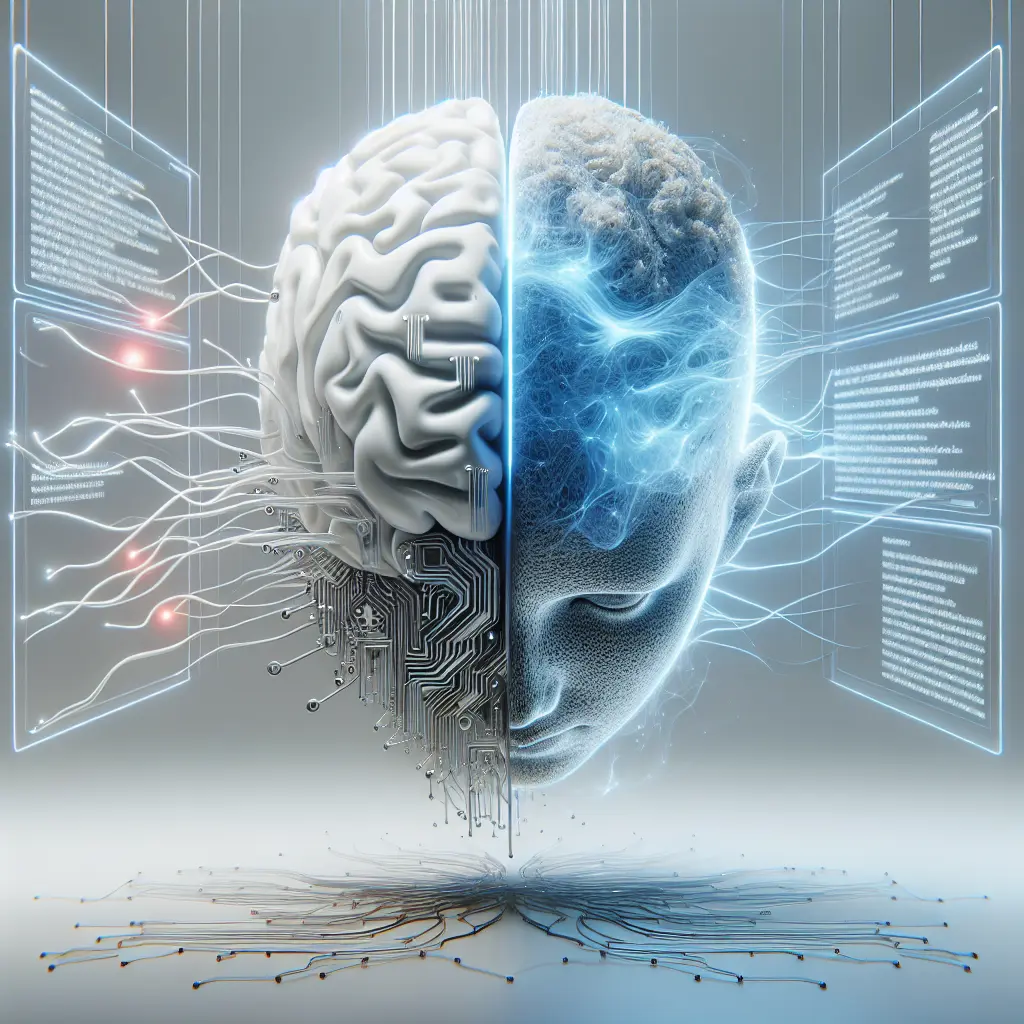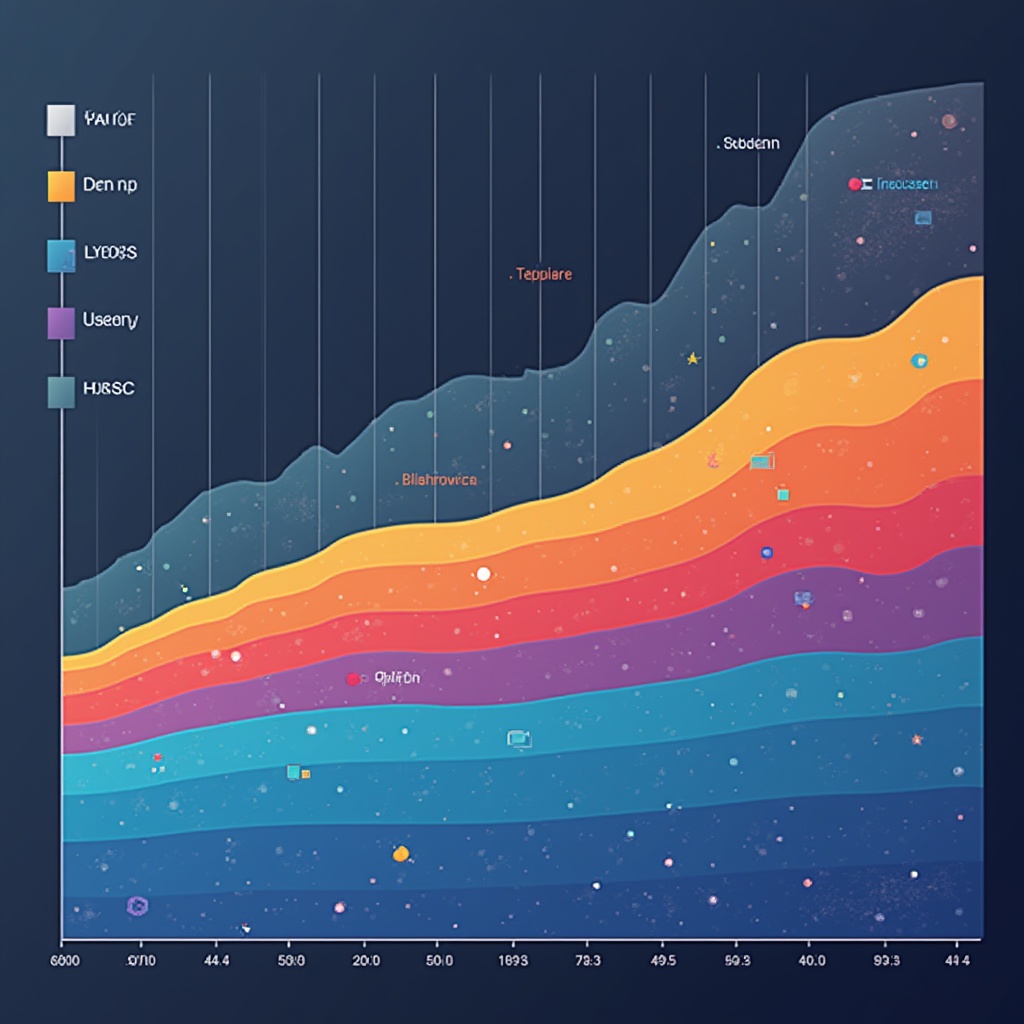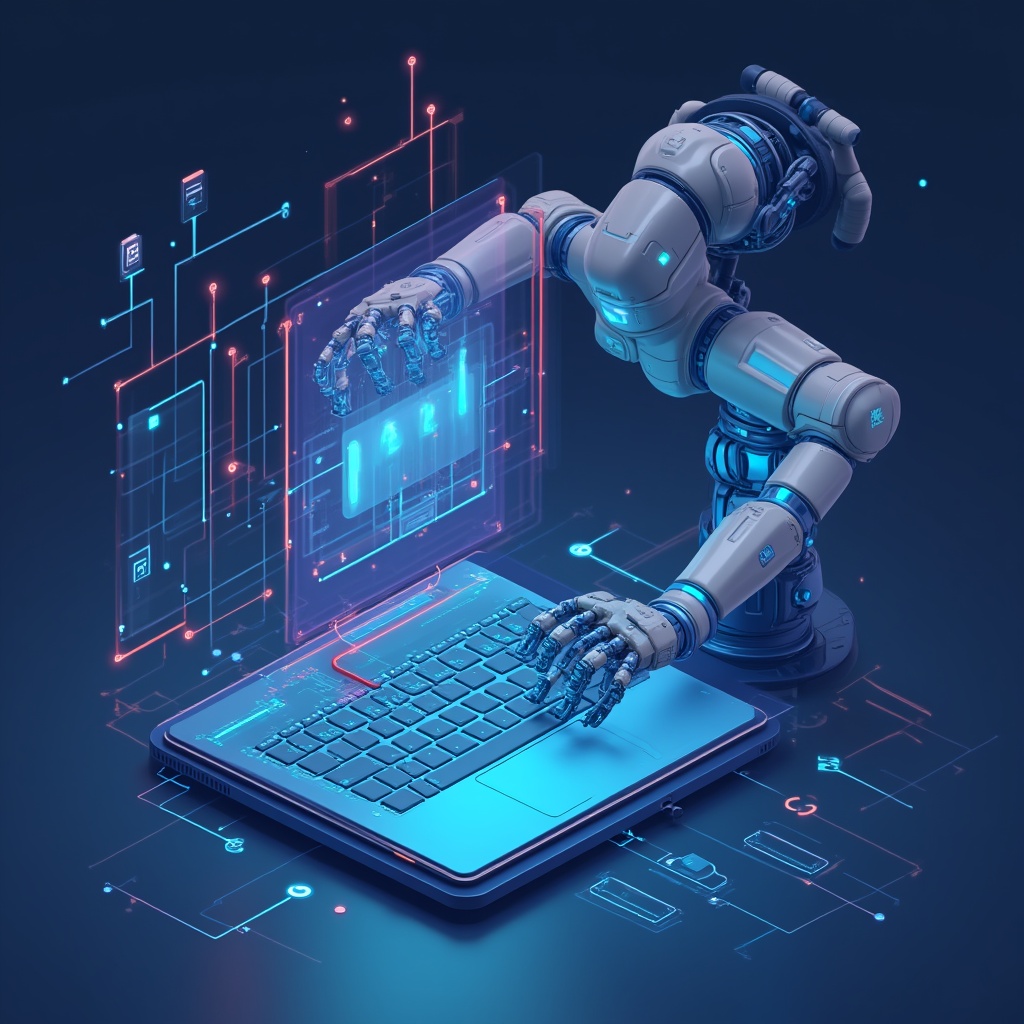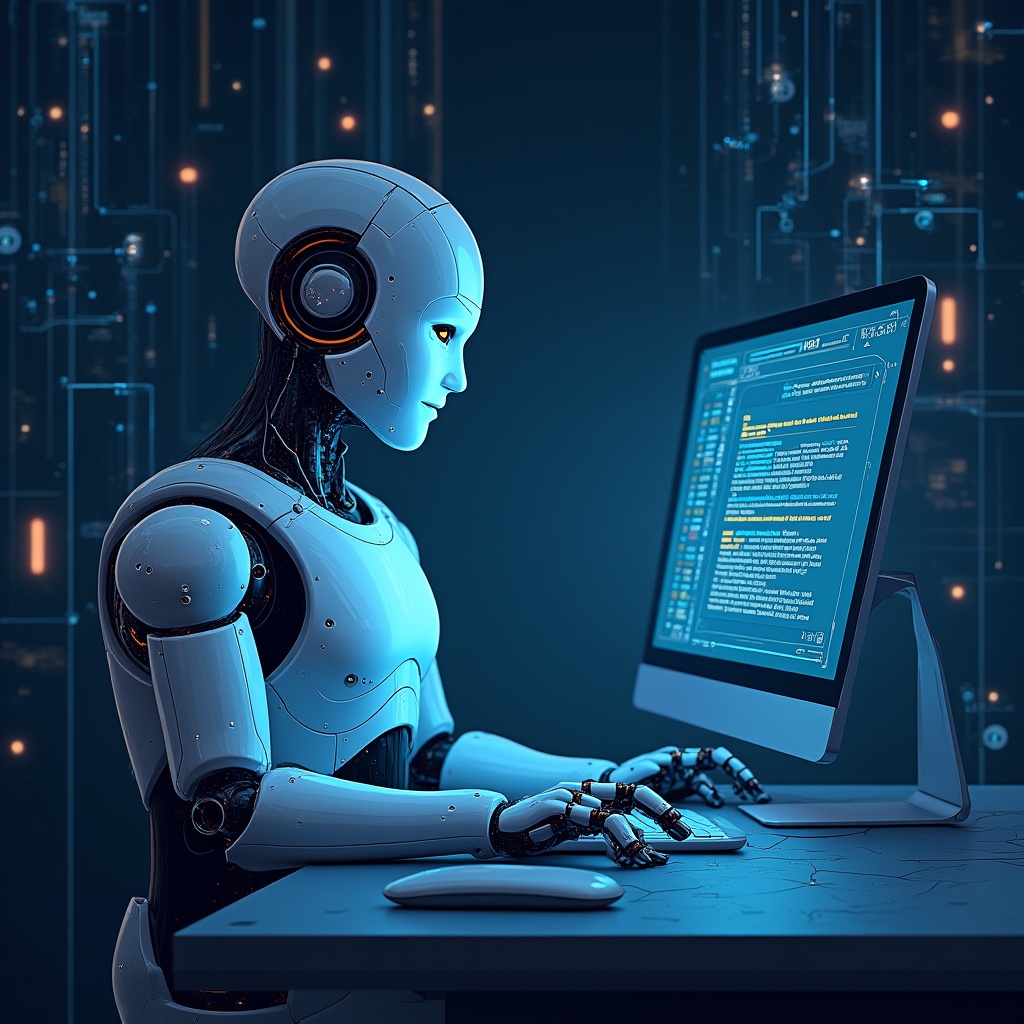ChatGPT isn’t “smart” in the human sense—it’s a sophisticated pattern-matching system that predicts text based on training data. While it excels at generating human-like responses and solving some complex problems, it lacks true understanding, consciousness, or reasoning abilities. Think of it as an extremely advanced autocomplete rather than a thinking entity.
So My AI Assistant Isn’t Actually Intelligent?
The first time ChatGPT completed my sentence before I even finished typing it, I’ll admit I got a little freaked out. “Is this thing reading my mind?” I wondered, before realizing that’s literally what it’s designed to do—predict what comes next. It felt almost spooky how “smart” it seemed, finishing my thoughts like an old friend who knows me too well.
But here’s the fascinating truth: ChatGPT isn’t actually “smart” in the way we humans are. It’s not sitting there pondering the meaning of your question or having an “aha!” moment when it solves a problem. What looks like intelligence is actually something entirely different—and honestly, maybe even more interesting when you understand what’s really happening under the hood.
Is it impressive? Absolutely. Is it actually intelligent? Let’s break it down…
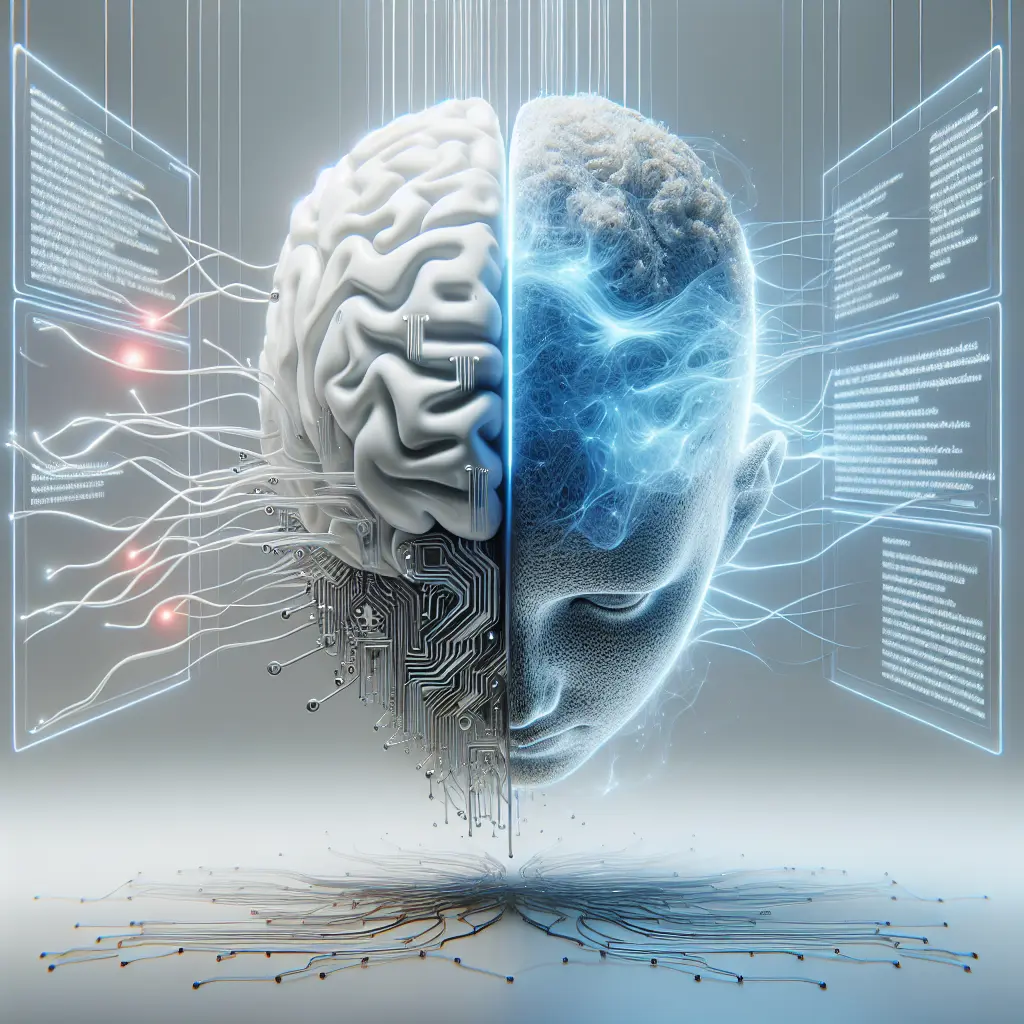
What ChatGPT Really Is (And Isn’t)
At its core, ChatGPT is a Large Language Model (LLM) trained on vast amounts of text from the internet, books, articles, and more. If we’re gonna use an analogy, think of it less like a brain and more like the world’s most sophisticated autocomplete system—one that’s been fed billions of examples of human writing.
What it definitely is:
- A pattern-matching system that predicts what words should come next
- A statistical model built on probability and correlations between words
- A system trained to mimic human-like responses through examples
What it absolutely is not:
- Conscious or self-aware
- Capable of true understanding or reasoning
- Able to “think” in any meaningful human sense
When you ask ChatGPT a question, it’s not thinking, “Hmm, let me consider this.” It’s essentially doing high-powered statistical predictions to generate text that’s most likely to be a reasonable response based on its training data. Pretty cool, but not exactly Skynet.
The Illusion of Intelligence
Here’s where things get interesting—and a bit mind-bending. ChatGPT is so good at mimicking human-like responses that it creates what experts call an “illusion of intelligence.” We humans are hardwired to recognize patterns and attribute intent and consciousness to things that act like us.
When ChatGPT writes a poem about your cat or explains quantum physics in simple terms, it feels like you’re talking to someone smart. But teh system doesn’t understand poetry or physics—it’s just really good at predicting what words about poetry or physics should appear together based on what it’s seen before.

This illusion is powerful enough that people have claimed these systems are sentient (they’re not) or have some kind of consciousness (they don’t). Even seasoned AI researchers sometimes catch themselves talking about these models as if they have intentions or understanding.
What ChatGPT Can (Surprisingly) Do Well
Despite not being “intelligent” in the human sense, ChatGPT can do some pretty impressive things:
- Write coherent, contextually appropriate text in various styles and formats
- Solve certain logical puzzles and math problems (though it can make careless errors)
- Summarize complex information into digestible chunks
- Generate creative content like stories, poems, or ideas
- Translate between languages with reasonable accuracy
These capabilities aren’t because it’s “thinking” about the problems but because the statistical patterns in its training data contain implicit information about how humans approach these tasks.
Common Myths About ChatGPT’s Intelligence
- Myth: ChatGPT understands what you’re saying. Reality: It detects patterns in your text and generates statistically likely responses without comprehension.
- Myth: ChatGPT has opinions or beliefs. Reality: It reproduces opinions found in its training data without holding any personal views.
- Myth: ChatGPT is sentient or conscious. Reality: It has no awareness, feelings, or internal experiences whatsoever.
The “Hallucination” Problem
One of the most telling signs that ChatGPT isn’t truly intelligent is its tendency to “hallucinate”—confidently generating information that sounds plausible but is completely false. It might invent citations, create fake historical events, or make up scientific facts that never existed.
This happens because it’s not retrieving information from a database of facts—it’s generating text based on statistical patterns without any actual understanding of truth or falsehood. A truly intelligent system wouldn’t so casually make things up while sounding completely confident about them.
I once asked ChatGPT to tell me about a famous battle that I completely made up, and it happily provided details about commanders, tactics, and historical significance. Not exactly Einstein-level smarts right there!
A Prompt You Can Use Today
Want to see both the capabilities and limitations of ChatGPT’s “intelligence” firsthand? Try this prompt that challenges its reasoning abilities:
I want to test your reasoning abilities. Please solve this logic puzzle step by step, explaining your thinking at each stage:
Three friends—Alex, Bailey, and Casey—each have a different pet (dog, cat, bird) and a different favorite color (red, blue, green). Given these clues:
1. The person who likes blue does not have a bird
2. Alex does not like green
3. The person with the dog likes red
4. Bailey has a cat
Who has which pet and what is each person's favorite color? Show your deductive process clearly.This kind of prompt reveals both what ChatGPT can do well (follow logical constraints) and where it might struggle (maintaining consistency throughout complex reasoning).
What’s Next for AI “Intelligence”?
While ChatGPT isn’t truly intelligent by human standards, AI systems are evolving rapidly. Future models might incorporate more types of reasoning, better factual grounding, and possibly even limited forms of self-correction and awareness of their own limitations.
But true human-like general intelligence? That’s still in the realm of science fiction for now. The gap between statistical pattern matching and actual understanding remains vast—even as the outputs of these systems become increasingly impressive.
FAQ: Understanding ChatGPT Capabilities
Q: How smart is ChatGPT compared to humans?
ChatGPT excels at language tasks and pattern recognition but lacks true understanding or reasoning. It might outperform humans in specific narrow tasks like text generation or recalling certain information, but can’t match even a child’s general intelligence, common sense, or ability to learn from limited examples.
Q: Is ChatGPT sentient?
No, ChatGPT is not sentient. It has no consciousness, feelings, or subjective experiences. What appears to be humanlike responses are sophisticated pattern matching based on its training data, not evidence of awareness or sentience.
Q: Can ChatGPT learn from our conversations?
Not in the way humans learn. While ChatGPT can adapt within a single conversation based on context, it doesn’t permanently learn from interactions with users or improve its overall capabilities through these exchanges. Each new conversation essentially starts fresh.
The Bottom Line: Impressive, But Not Intelligent
ChatGPT represents an incredible technological achievement—it can generate human-like text that’s often indistinguishable from what a person might write. It can assist with complex tasks, provide creative ideas, and even offer explanations that feel insightful and thoughtful.
But beneath this impressive veneer is a system fundamentally different from human intelligence. It’s a sophisticated statistical model that excels at predicting what words should come next—not a thinking entity with understanding, consciousness, or reasoning capabilities.
Perhaps what makes these AI systems most fascinating isn’t how “smart” they are, but how they show us just how much of what we consider “intelligence” can be approximated through pattern recognition alone. That realization might ultimately teach us something new about human intelligence itself.
Ready to explore more about the fascinating world of AI? Check out our article on how these models are trained and what the future might hold for this rapidly evolving technology.

